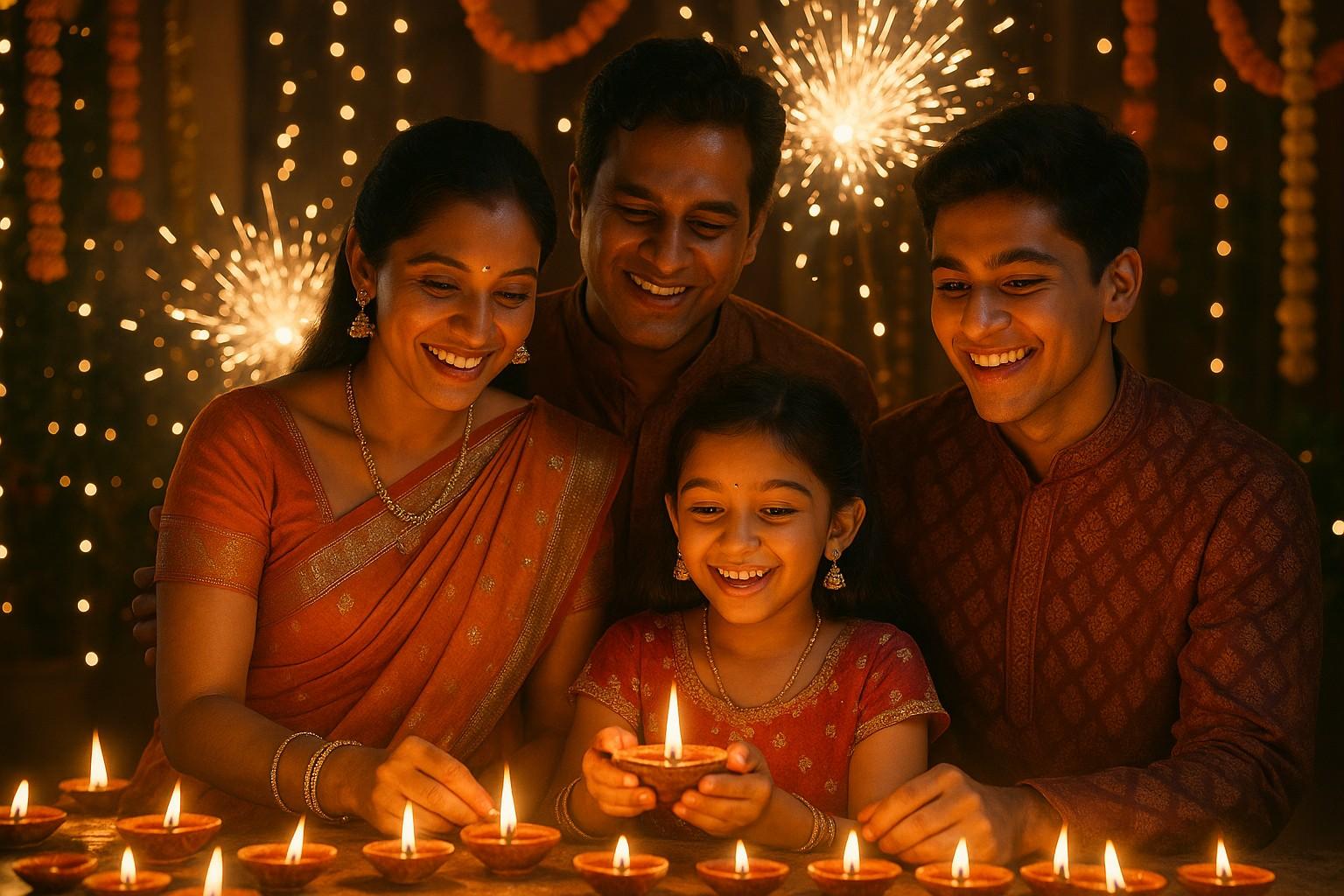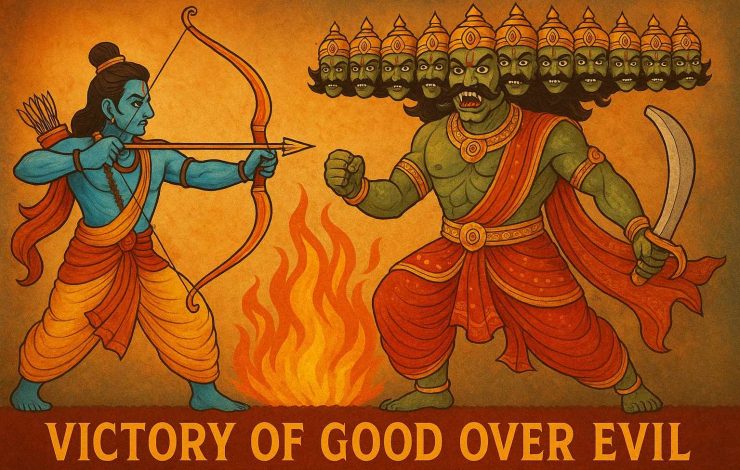
Dental Clinic Near Me Book an Appointment Recent Posts All Posts Ankusha blog Dental Clinic Near Me Read More Childrens...

Dental Clinic Near Me Book an Appointment Recent Posts All Posts Ankusha blog Dental Clinic Near Me Read More Childrens...

Comprehensive Children’s Dental Care in Banjara Hills & Kukatpally Book an Appointment Recent Posts All Posts Ankusha blog Diwali Celebrations...

Diwali Celebrations in India: The Festival of Lights and Joy Book an Appointment Recent Posts All Posts Ankusha blog Diwali...

Dussehra, also known as Vijayadashami, is one of the most significant festivals celebrated across India. Falling on Thursday, 2nd October 2025, it marks the end of the nine-day Navratri festival and symbolises the triumph of good over evil. While it is deeply rooted in Indian mythology, its message is timeless, encouraging people to defeat negativity and embrace positive virtues in their everyday lives.
Just as Dussehra celebrates the triumph over inner demons, Ankusha Dental is committed to helping people overcome oral health challenges. Strong oral care safeguards your smile, just as strong values safeguard your life. In this blog, we delve into the essence of Dussehra, its celebrations, and how its timeless values can inspire better health and wellness.
The central theme of Dussehra is the victory of good over evil. According to the Ramayana, Lord Rama defeated the demon king Ravana on this day, freeing his wife Sita from captivity. This victory is celebrated to remind us that truth, righteousness, and moral courage will always prevail over deception, greed, and injustice.
On a personal level, Dussehra teaches us to overcome our inner demons, ego, anger, greed, jealousy, and neglect. It calls on us to embrace honesty, compassion, self-discipline, and healthy habits. In the same way, choosing preventive dental care over neglect helps defeat problems such as cavities, gum disease, and bad breath before they escalate.
One of the beautiful aspects of Dussehra is its regional diversity. Each part of India celebrates the festival in its own unique way while holding on to the same underlying spirit.
These diverse celebrations show how Dussehra is more than just a religious festival; it is a cultural event that brings people together, much like a healthy smile brings warmth to relationships.
Dussehra is regarded as a highly auspicious day for new beginnings. People purchase gold, vehicles, and property or launch new businesses, believing that ventures started on this day will prosper. Schools often begin new terms, and individuals set personal goals for the coming months.
In the same spirit, Dussehra can be a great time to commit to a new health routine. For example, you can:
Making these small but meaningful changes during an auspicious time can motivate you to stick to them long-term.
Dussehra and Vijayadashami are two names for the same festival, but they highlight different ideas.
This double naming shows how rich and meaningful the festival is. In the same way, oral problems often have many causes — poor brushing, too much sugar, or skipping check-ups. Taking care of all these causes together helps you keep your teeth and gums healthy for a long time.
Festivals are not only times of joy but also times of reflection. Dussehra’s message of choosing the good over the harmful can apply directly to health:
At Ankusha Dental, our team is dedicated to helping you achieve optimal oral health through preventive care, advanced treatments, and personalised advice.
This Dussehra, while you enjoy the festivities, sweets, and cultural events, remember the festival’s deeper meaning. Just as Lord Rama defeated Ravana, you can defeat dental problems by adopting healthy practices. A bright smile not only boosts your confidence but also reflects inner well-being.
We invite you to visit Ankusha Dental and start your journey towards a healthier smile this festive season. Let Dussehra be the day you choose good oral habits over neglect, ensuring a lifetime of confident smiles.
Dussehra is far more than a ritualistic celebration. It’s a powerful reminder that goodness, truth, and discipline will always prevail over negativity. By applying its message to our health and lifestyle choices, including dental care, we can lead happier, healthier lives.
Celebrate this Dussehra not only with festive joy but also with a renewed commitment to your personal well-being. After all, a radiant smile is one of the best ways to spread positivity and embody the true spirit of victory.
Dussehra falls on Thursday, 2nd October 2025, the tenth day of Ashwin after Navratri.
It signifies the victory of good over evil and encourages us to overcome ego, anger, and greed.
With special pujas, Ramlila plays, burning of Ravana effigies, feasts, and cultural events. In South India, Ayudha Puja is done; in Bengal, it coincides with Durga Puja immersion.
Yes. It’s considered auspicious for starting new ventures, buying property, gold, or vehicles.
Yes. Both are the same festival, symbolizing the defeat of Ravana’s ten heads and victory on the tenth day.